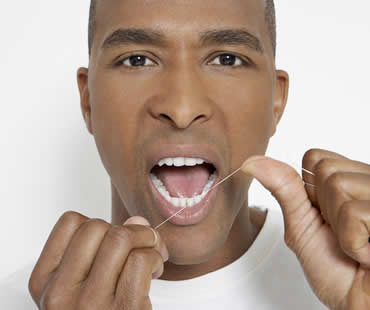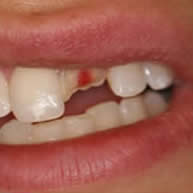Cleaning between your teeth and along your gums with dental floss is just as important as using your toothbrush. Although many people complain about flossing or completely avoid doing it, there should be no excuse for neglecting this part of your dental hygiene routine.
Flossing your teeth allows you to get rid of food particles and plaque that is caught between your teeth. It is able to reach areas that your toothbrush can’t. Therefore, flossing plays a key role in preventing tooth decay, gum disease, and bad breath.
You should floss your teeth at least once every day, using a gentle touch so you don’t damage your gums. You can use waxed or unwaxed dental floss, depending upon your preference and which one works best for you. Interdental cleaning aids like picks and sticks may also be carefully used, as well as floss holders. These tools are especially helpful for those with arthritis and vision problems.
Another item that may help remove trapped food debris is a water spray tool called an oral irrigator, although it shouldn’t replace flossing. The same is true for mouthwash, which may be used to help rinse away germs and temporarily freshen breath. You can add these items to your hygiene routine, but giving up flossing should not be an option. Using dental floss is the very best way to attack food particles and plaque so that you have the greatest chance for a healthy mouth.
Dr. Townsend is a family and cosmetic dentist in Clinton NJ






